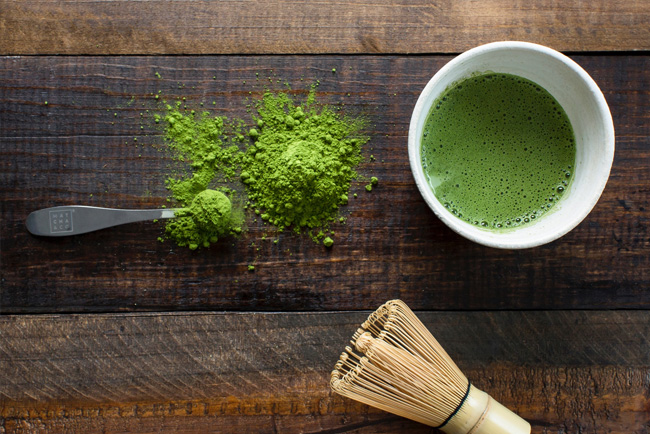Exclusively written for thefunctionagutclinic.com by Patty Burke
Green tea has always been regarded as somewhat of a miracle worker, especially regarding gut health. The drink, which has long been popular in Asian countries, is lauded as a superfood due to its purported health benefits like supporting immunity and bone density, protection against cancer, improvement of brain health, and a whole lot more. While green tea is increasingly becoming embraced in the West, it’s typically due to novel reasons. It’s often infused in commercially sold goods like confectionary and gimmicky drinks.
But green tea isn’t regarded as a miracle worker for nothing. Included in its health benefits is its ability to make a drastic impact on the body’s gut health. As mentioned in our ‘Prebiotics or Probiotics – What’s the difference?’ post, having a healthy microbiome is crucial in maintaining your overall well-being. Not only does it affect your digestion, but it can also fight against bacteria, and even boost your brain health, too.
With the recent studies revolving around green tea and its link to gut health, it may just be one of the most effective foods for enhancing your microbiome. Here’s why:
It populates healthy bacteria in the intestines.
Consumption of green tea has been linked to improving gut health by populating healthy bacteria in the intestines. Research has been conducted in Ohio State University that has found evidence proving that green tea can encourage the growth of good gut bacteria, leading to a litany of benefits, including lowering the risk of obesity. It can also result in less permeability in the intestinal wall, a condition which is often referred to as “leaky gut”. While there is further research needed to figure out how much tea a person should consume to reap all these benefits, Richard Bruno, the head of the study, notes that drinking it throughout the day with food is an ideal place to start.
It improves digestion.
A study by Yan and colleagues reveals that green tea is rich in polyphenols, helping the body improve its digestive process. To the uninitiated, polyphenols are digestive compounds found in the tea plant. It’s no wonder green tea is such a popular ingredient in a variety of other health and wellness beverages. Pretty Me’s review of Lean N Green coffee highlights green tea as its main star, thanks to its ability to facilitate digestion. Regular consumption of green tea can help you ease the process of digestion, which contributes to the improvement of your gut health as well.
It can suppress food allergies.
Researchers from Shinshu University in Japan have recently discovered that there are certain gut microbes that can affect how the body’s immune system reacts to some allergens. Spearheaded by Tasuku Ogita, who also happens to be a tea expert, the team discovered that Flavonifractor plautii, which is found in the gut, is a strain of the Clostridia family of bacteria. These bacteria are known to have positive effects on the immune system and can relieve inflammation. F. plautii is found to be triggered by the catechin antioxidant in green tea and can strongly suppress a group of immune cells called Th2, the very same cells responsible for the body’s reaction to food allergies.
More studies are still needed to verify whether or not green tea can indeed fight food allergies, but this is a step in the right direction.
References
Dey, P., Sasaki, G. Y., Wei, P., Li, J., Wang, L., Zhu, J., . . . Bruno, R. S. (2019). Green tea extract prevents obesity in male mice by alleviating gut dysbiosis in association with improved intestinal barrier function that limits endotoxin translocation and adipose inflammation. The Journal of Nutritional Biochemistry, 67, 78-89. doi:10.1016/j.jnutbio.2019.01.017
Yan, Z., Zhong, Y., Duan, Y., Chen, Q., & Li, F. (2020). Antioxidant mechanism of tea polyphenols and its impact on health benefits. Animal Nutrition,6(2). 10.1016/j.aninu.2020.01.001
Ogita, T., Yamamoto, Y., Mikami, A., Shigemori, S., Sato, T., & Shimosato, T. (2020). Oral Administration of Flavonifractor plautii Strongly Suppresses Th2 Immune Responses in Mice. Frontiers in Immunology, 11. doi:10.3389/fimmu.2020.00379


